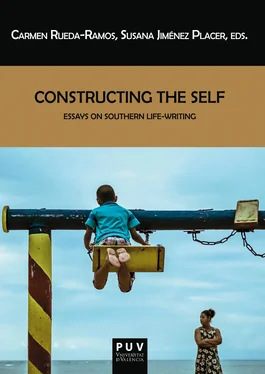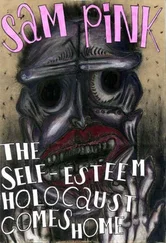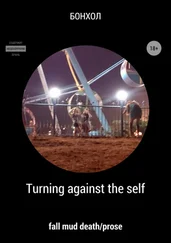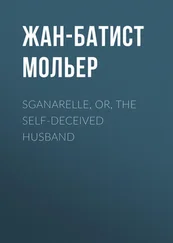In connecting with readers, I also wanted a certain amount of humor in the volume. It is always good when readers laugh as they are learning about you and sharing in your experiences. I capture humor by envisioning readers. As a writer, it is important to be creator and audience member, writer and reader .If I write something, I must be able to imagine how readers will respond to it, what their reactions might be. For any composition, whether it is a newspaper column, a personal essay, or a scholarly book, I try to conjure up an ideal audience member to whom that writing is directed. For Summer Snow , that ideal reader/listener was my mother. I figured that, if my mother—who had a tenth grade education—could read and enjoy Summer Snow , then anyone else could. Notice that I say “reader/listener.” I always imagined taping the book for my mother to listen to it. Also, if I could get my non-reading relatives, such as my third sister and her husband, to read the book, then that would have been a major achievement. I succeeded in doing that when the mischievous husband called me and read passages that he recognized as being about certain members of the community in which we grew up.
Summer Snow is also about intentionally disturbing the peace at times, as in the essay, “Would you go out with a white boy for five dollars?” I was hoping that readers would indeed contemplate cross racial, social and sexual liaisons in the South and what those had traditionally meant—as well as what they mean for contemporary times. With “Dental Charity,” I wanted readers to contemplate how even well-intentioned good deeds can backfire, or, in another essay, how desegregation was detrimental, or, in yet another, how celebrations of Martin Luther King Jr.’s birthday can be wrongheaded at times.
Mostly, though, Summer Snow is about claiming the South. As I point out in the eponymous essay, it is about as rare for black people born in the South to claim that territory, emotionally and physically, as it is for snow to fall in Alabama in July. Over several decades, I have grown to love the South, in spite of its viciously violent history, and I have grown especially to love the territory in Alabama in which I grew up. Still, I join James Baldwin in his claim that, because he loves a territory, he has earned the right to criticize it. So, I criticize the backwardness of the South, its continuing racism, its poorly educated citizens, and its lingering propensity to violence. Nonetheless, I call it home, and I, like Natasha Trethewey, will claim my final resting place there.
For my purposes here, however, I emphasize that I did not think consciously of some of the things I’ve mentioned as I was composing the essays in Summer Snow . In an early essay, “The Overweight Angel,” for example, I was so excited about remembering the folks in that essay that I was too naïve to change their names. Aun Sis was my mother’s only sister, so she was simply called “Sis.” She was a rather large woman, who, from my adolescent eyes, seemed always to be sitting on her porch minding other folks’ business. She didn’t take no stuff from her five children or from anybody else’s kids. There was no business that she did not consider her own. She would tell my mother how to raise us after my father died, and she would set her children against us as models for correct behavior. So, without a thought of impending consequences, I named her in the essay.
In 2003, I still resided in Chapel Hill, North Carolina. I had no way of knowing when any particular relative got their hands on a copy of Summer Snow and read it—unless they let me know. Well, apparently some of Aun Sis’s folks read that essay. And they were not happy. Now, they didn’t tell me that they were unhappy; they just conveyed that to my relatives in Tuscaloosa. This went on for years. In fact, I only found out on a trip home to Tuscaloosa. The general feedback was that Aun Sis’s descendants, that is, her three remaining daughters and lots of grandkids, did not like how I had portrayed Aun Sis. Initially, I was genuinely puzzled. What had I done wrong? Was there some innate sense of violation of privacy? Did they not like how I had described her physically?—but she DID look like that. Did they not like the traits I had assigned to her?—which were all true. Did they not like the fact that the narrator was laughing slightly on occasion? Or, did they just not like the fact that any member of their family could be portrayed in a book, no matter how she was portrayed?
Well, I said, if folks have objections, let them come and talk with me. Interestingly, no one ever did. If anyone had confronted me directly, I would have countered with: “But the essay shows clearly that Aun Sis believed in education, which is something that our family has supported strongly since we can remember, so what’s the problem with that? In spite of the humor, Aun Sis is a good woman.” I’m not sure that that “defense” would have convinced anybody, but I would have used it happily. Still, rumors about the displeasure of those descendants persisted for years. I could never zero in on any one person responsible for the displeasure, or any specific complaint, but the overarching sense that I had violated some un-written or un-spoken rule prevailed. Since I moved back to Tuscaloosa in 2009, I have not heard any comment about Aun Sis’s portrayal in the essay and, at this late date, I don’t expect to hear any. I became conscious of the fact, however, that any writer, but especially a memoirist, perhaps needs a bit more schooling in the art of disguise when he or she produces a memoir.
On the other hand, the large family about which I wrote in “Make A Joyful Noise” never raised a single voice of objection. Perhaps the lighter side of that essay made it much more acceptable. Or perhaps those were just folks with other, more serious, things to contemplate than what someone had written in a memoir. Or perhaps they didn’t read Summer Snow —which is a distinct possibility. “Make a Joyful Noise” remains one of my favorite essays because it captures a time in my youth when camaraderie was prominent, when church was as much a social institution as it was a spiritual one, and when neighborhoods were truly neighborhoods.
Memoir writing is an adventure, but it is never a journey that one takes alone, no matter how much he or she might believe to the contrary. Writing is about multitudes, for each of us carries relatives, friends, neighbors, teachers, church members, and a host of others around with us in our very DNA. While we can never separate ourselves from them, we can only hope that they do not attempt to claim too much of our lives. Their residing with us, after all, constitutes a shared community that presumably gives the individual the right to express individuality without having to unchain herself from unapproving hoards. Perhaps, as my younger sister said upon completing Summer Snow , “Well, that’s the way you remember things,” it is the sanest response we can hope for from that community.
Academic life narratives will probably never achieve the acclaim of the one that Frederick Douglass penned. However, they succeed well in showing that the impulse to creativity that grew out of the circumstances of those who were enslaved continues to define African Americans in twenty-first century narratives. “How I got over” is as legitimate a reason for exposing the self to public scrutiny as “How I escaped from slavery.” In both cases, the migrations in the lives of black Americans from one state of being to another had—and have—the power to influence generations of other aspiring African Americans. Transformation is the impetus to creativity, and those transformations are well worth the trips down memory lane.
Читать дальше












